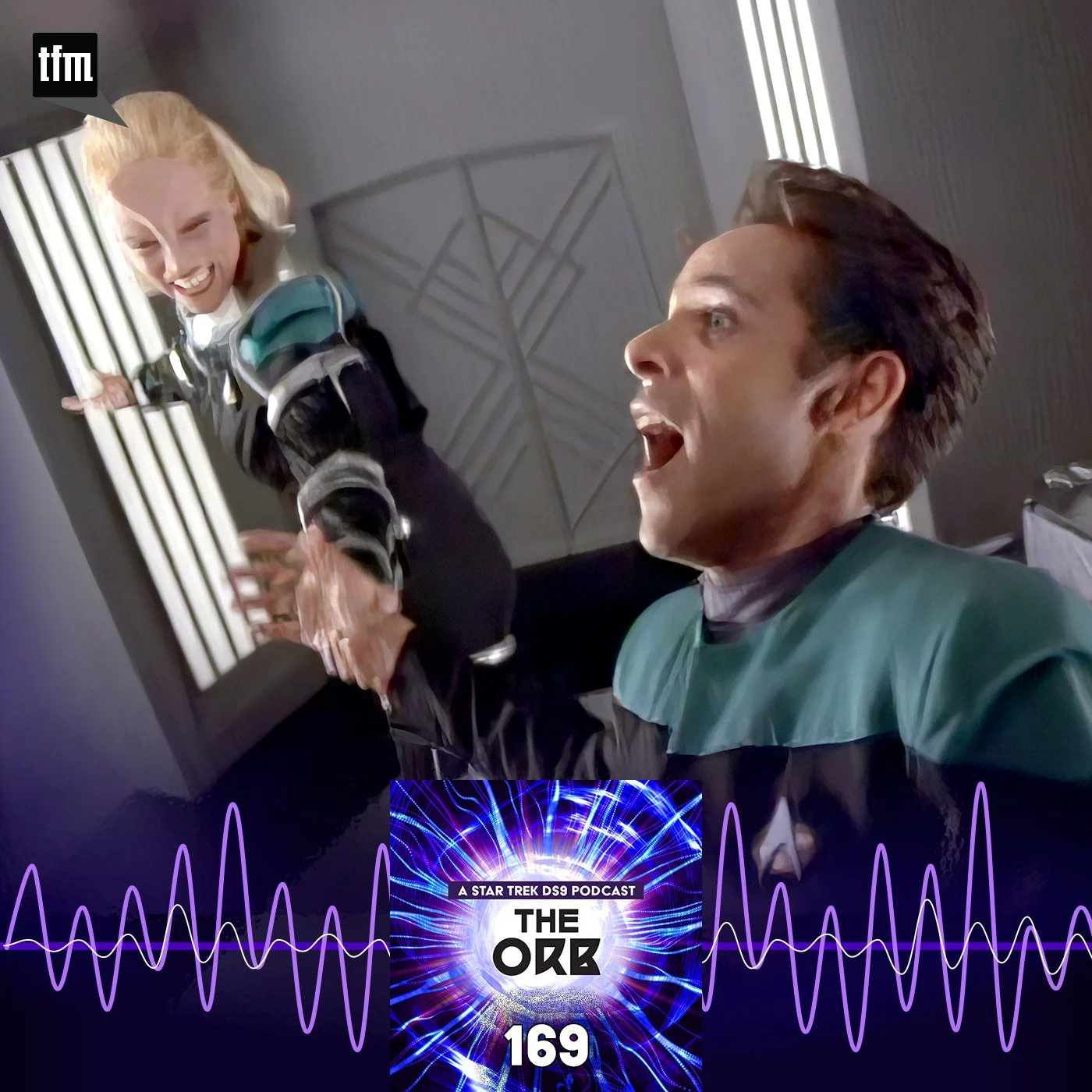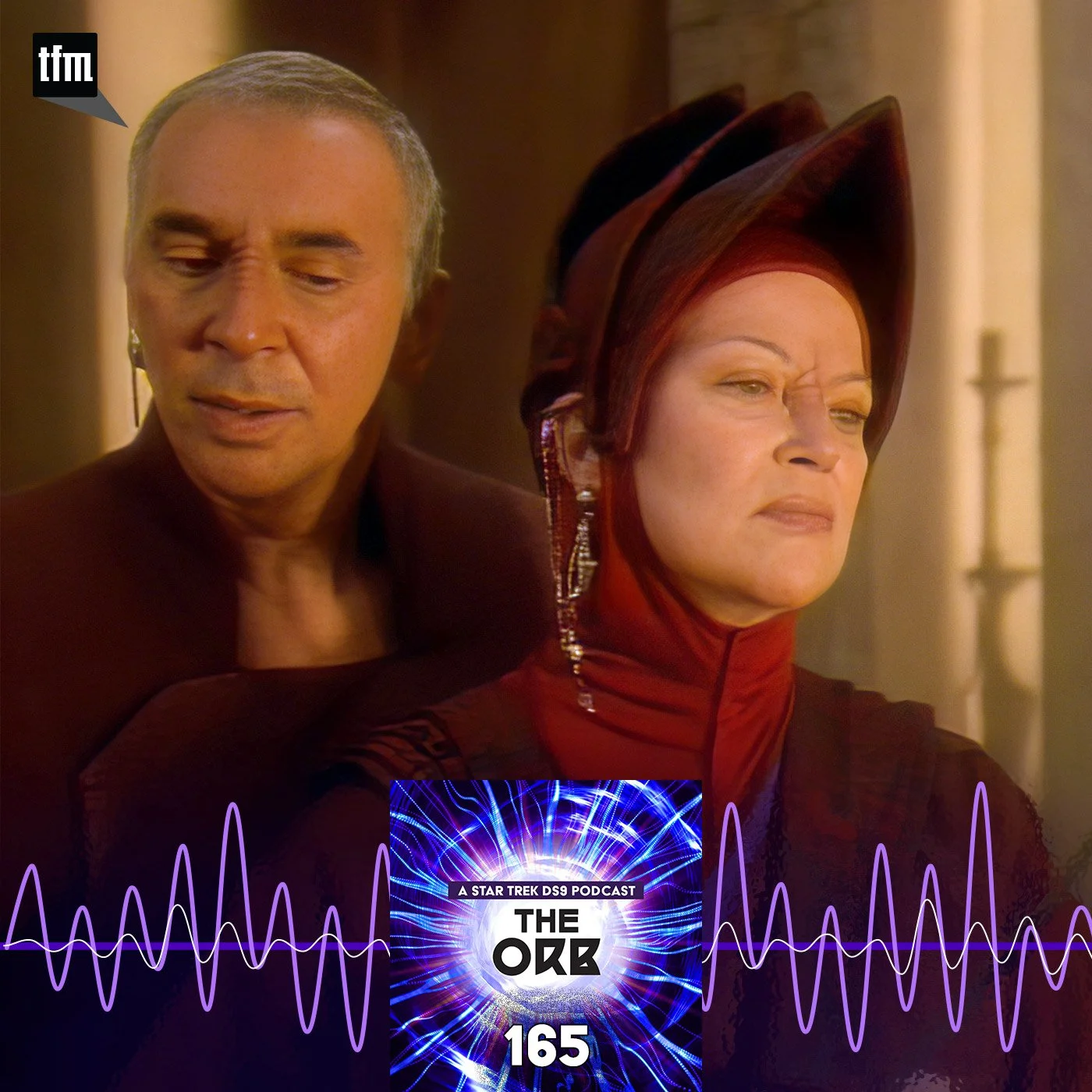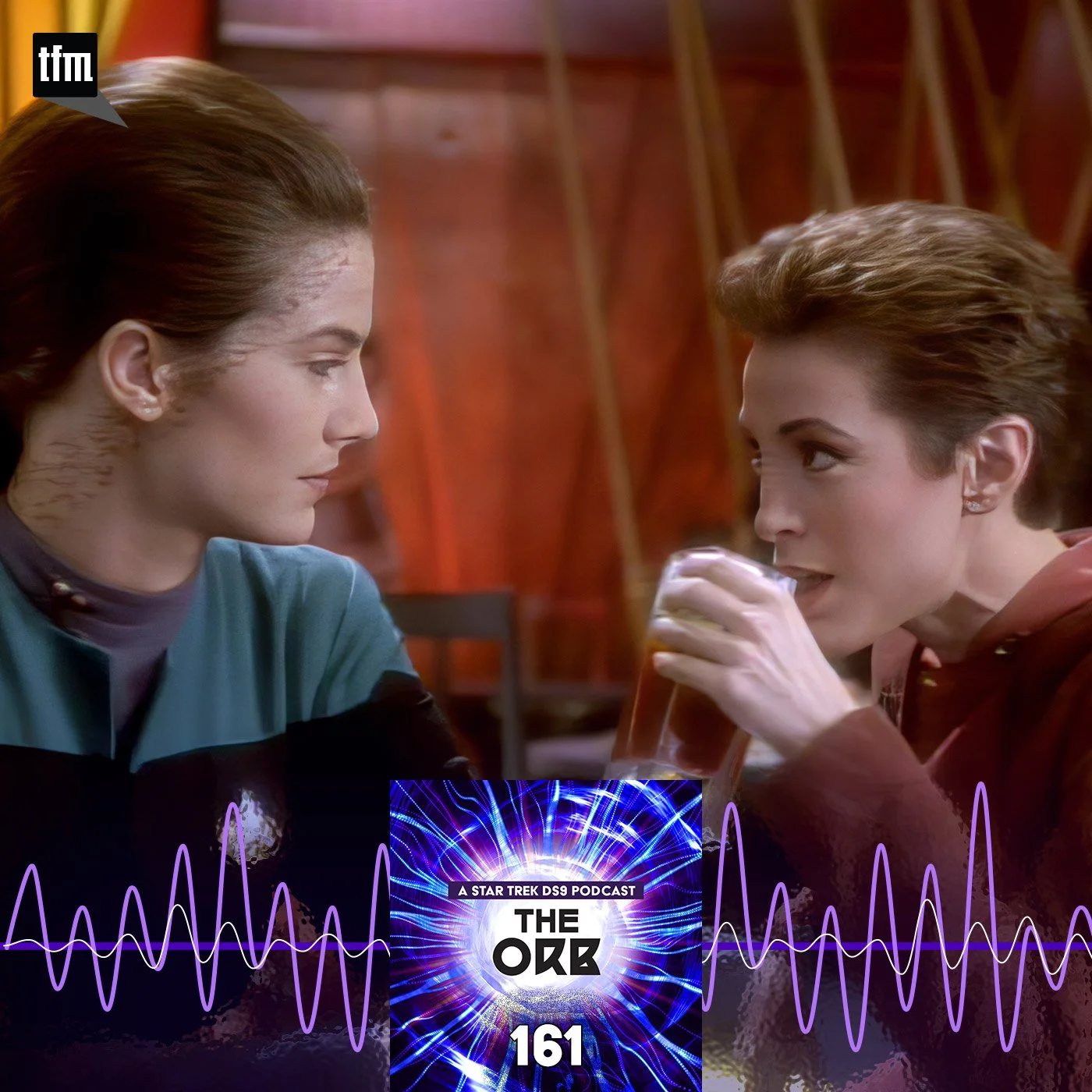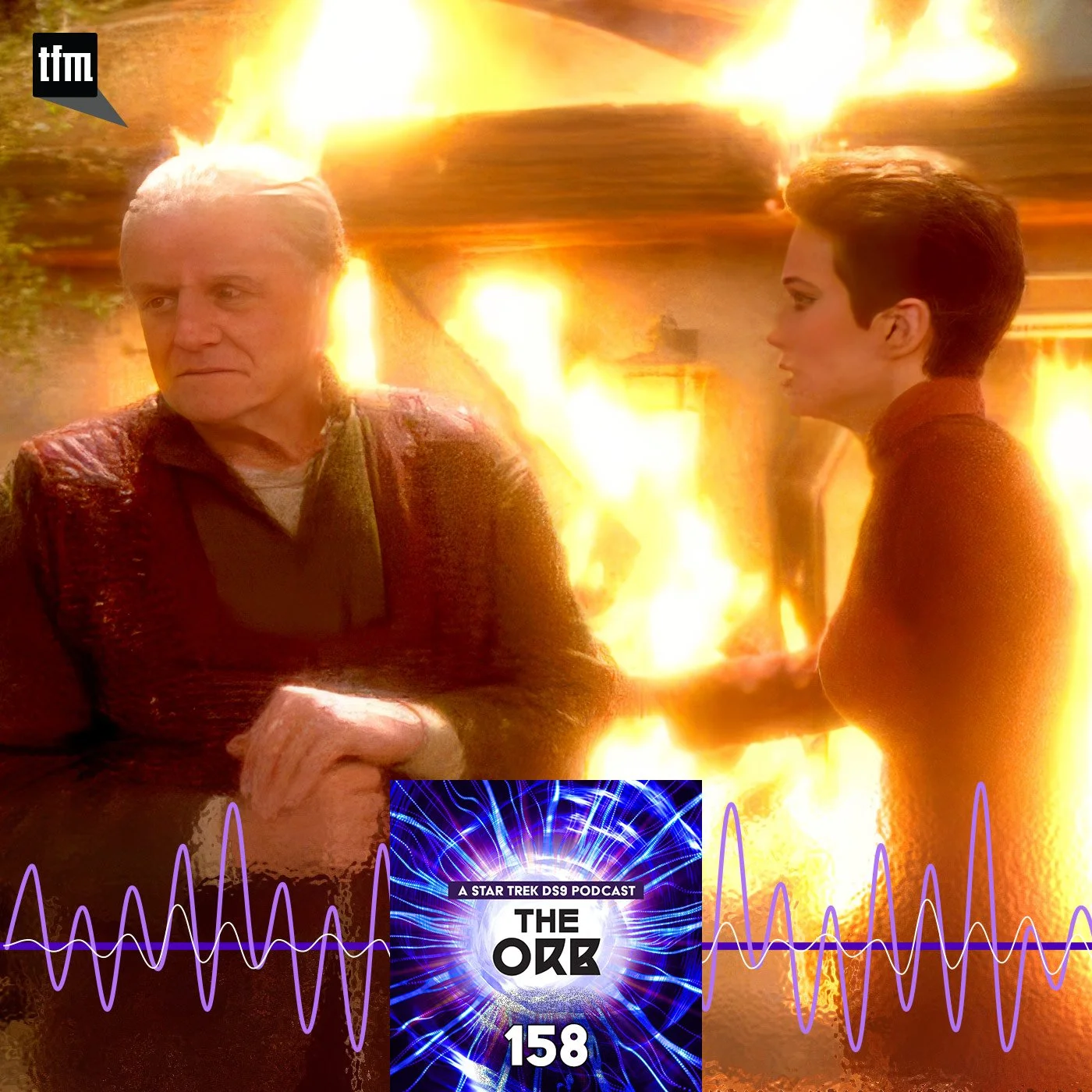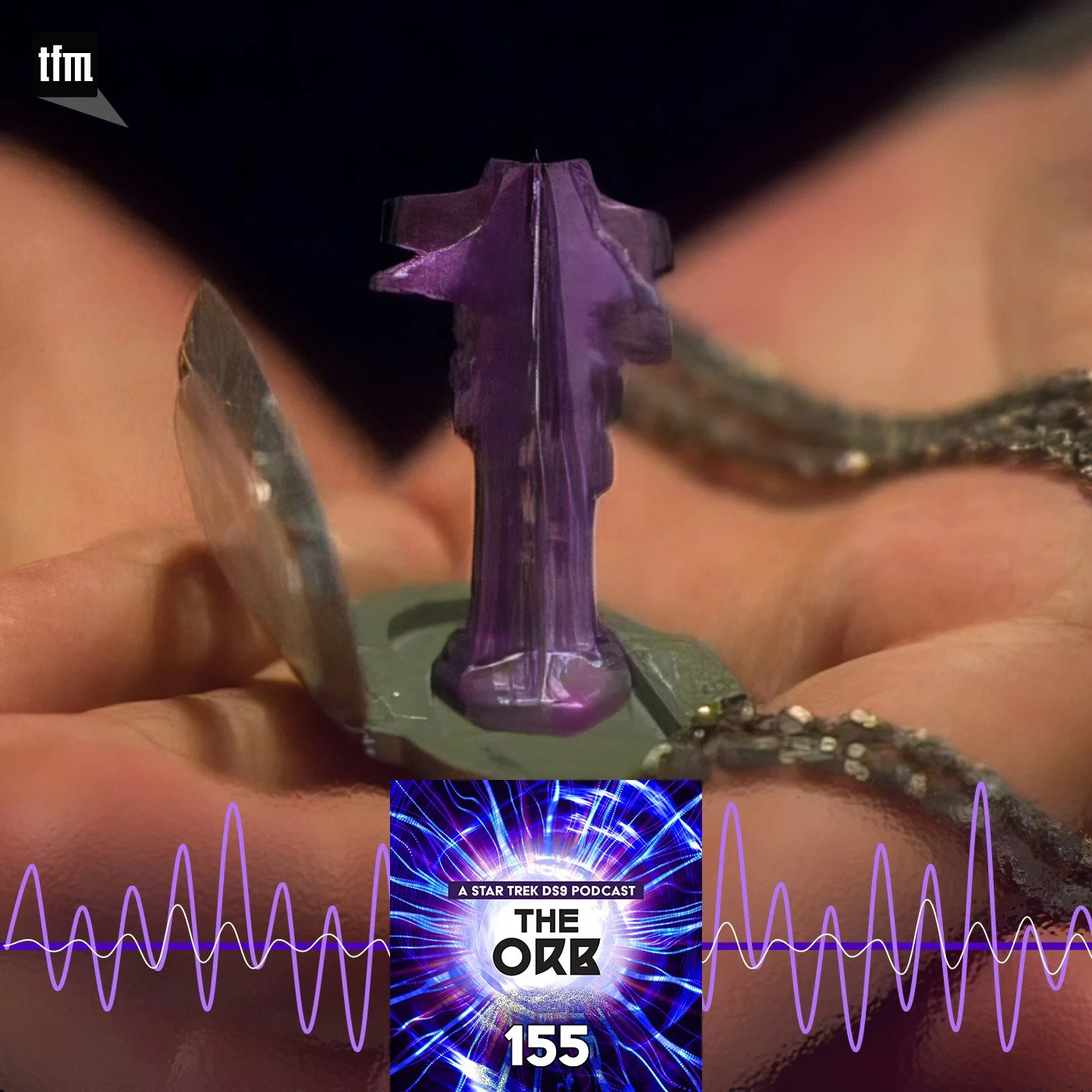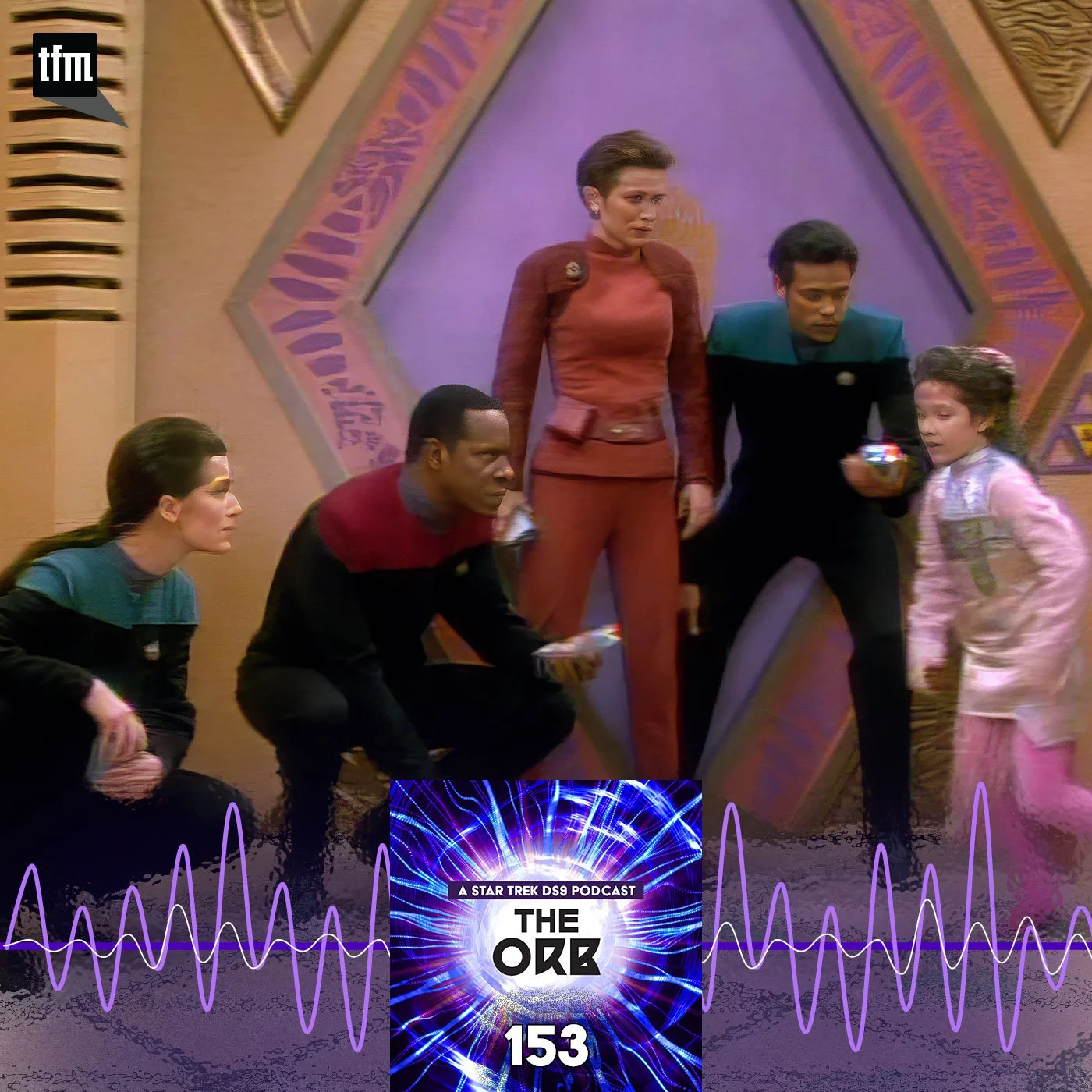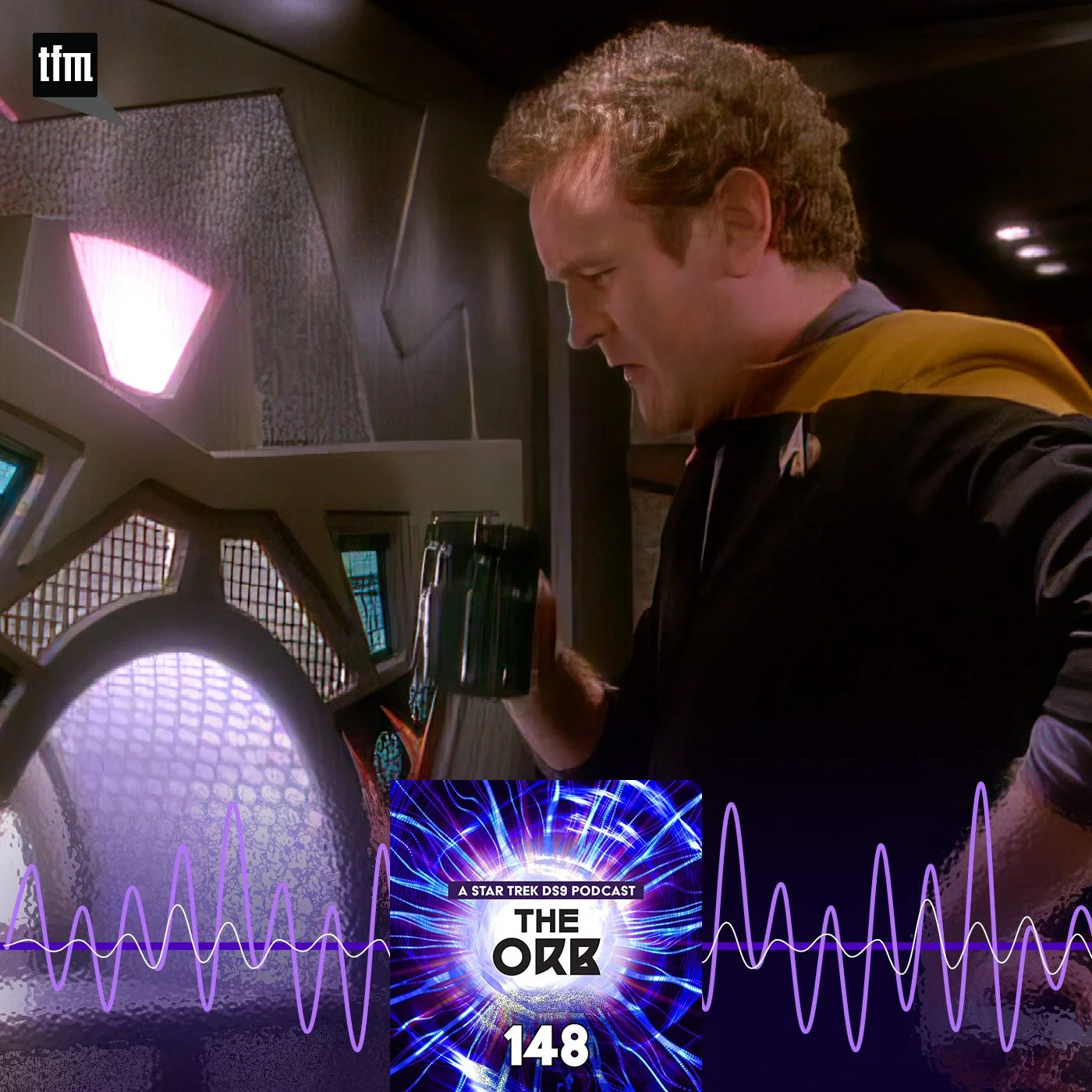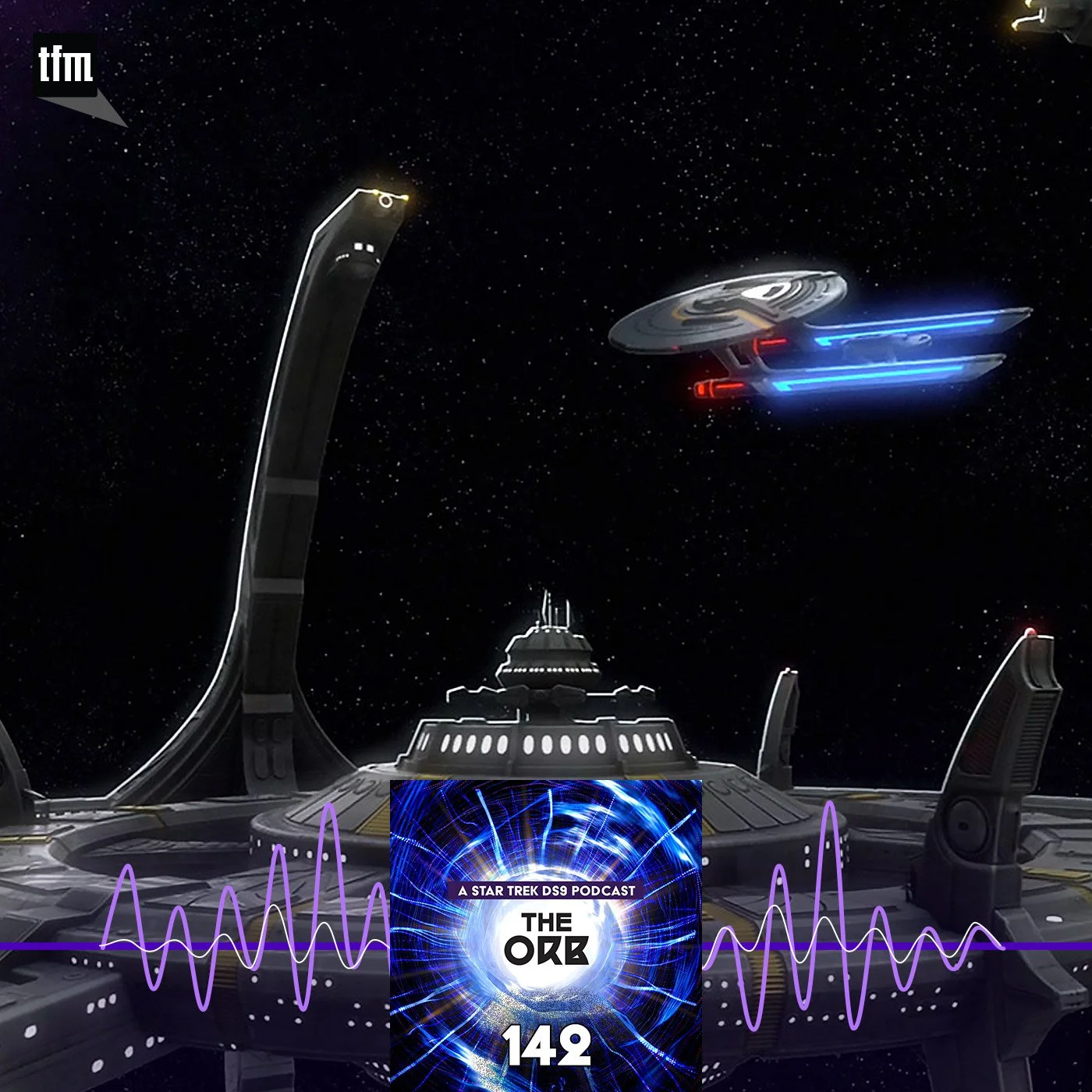Time Travel and Alternate Realities.

Running Time: 58 minutes 18 seconds
Download / RSS / Send us a message / Discuss the show / Support Trek.fm
Like all Star Trek series, Deep Space Nine has its fair share of time travel stories. Some, like “Visionary” are your standard trips through time. Others, like “Past Tense,” carry strong social commentary. And still others, like “Children of Time,” create alternate realities and mind-boggling paradoxes that can send you in search of the aspirin bottle if you try to make sense of them. But through it all DS9 does what it always does best—build characters.
In this episode of The Orb hosts Christopher Jones and Matthew Rushing discuss time travel in general and compare and contrast two specific episodes—“Visionary” and “Children of Time”—as we look at how the DS9 writers utilize one of science fiction’s most popular plot devices.
Hosts
C Bryan Jones and Matthew Rushing
Production
C Bryan Jones (Editor and Producer) Matthew Rushing (Executive Producer) Norman C. Lao (Executive Producer) Charlynn Schmiedt (Executive Producer) Ruth Ward (Associate Producer) Will Nguyen (Associate Producer) Ken Tripp (Associate Producer) William Murray (Associate Producer) Kay Elizabeth Janeway (Associate Producer) Richard Marquez (Production Manager)
“Melora” 30th-anniversary reflections. We discuss what the story says about challenges and limitations, becoming comfortable with yourself, and how the character connects to the original concept for the series.
“Cardassians” 30th-anniversary reflections. We discuss how the story expands the rich world created for the series, the return of Garak, and the difficult questions around culture and identity.
“Invasive Procedures” 30th-anniversary reflections. We discuss how the intimate story sheds light on Trill society and the relationship between symbiont and host.
“The Siege” 30th-anniversary reflections. We discuss Li Nalas's fate, what the story has to say about family and community, and how Trek's first TV trilogy ends.
“The Circle” 30th-anniversary reflections. We jump into Season 2 as we discuss how the Kira/Jaro story mirrors the start of Season 1, the timeless commentary, our fondness for middle stories, and Vedek Bareil's disturbing gaze.
“The Homecoming” 30th-anniversary reflections. We jump into Season 2 as we discuss how this story of Bajoran isolationism transforms storytelling in Star Trek and rings true three decades after it aired.
“In the Hands of the Prophets” 30th-anniversary reflections. We close out Season 1 by discussing how the story bookends the pilot while setting the series on course for its destiny of richly intricate serialized storytelling.
“Duet” 30th-anniversary reflections. We discuss how a story pitched by interns to save budget broke the dam and unleashed the potential of the young series.
Dramatis Personae ” 30th-anniversary reflections. We discuss how the writers put a distinctly DS9 twist on a TNG premise to deliver masterful character development.
“The Forsaken” 30th-anniversary reflections. We discuss how the writers put a distinctly DS9 twist on a TNG premise to deliver masterful character development.
“If Wishes Were Horses” 30th-anniversary reflections. We discuss the story's fun veneer, the wealth of character and social commentary that lies beneath, and why Miles must be feeling like Lando Calrissian.
“Progress” 30th-anniversary reflections. We discuss how the story of a stubborn landowner continues Kira’s incredible character development and focuses the DS9 narrative on everyday people.
“The Storyteller” 30th-anniversary reflections. We discuss how a long-dismissed idea finally found a home on DS9, the search for Bajoran identity, and what the story has to say about the importance of fathers and the power of collective belief.
“Battle Lines” 30th-anniversary reflections. We discuss how Opaka’s new calling changes not only her life but also Kira’s, why it was necessary to remove Opaka from her role on Bajor, what the story says about conflict, punishment, and redemption, and more.
“Vortex” 30th-anniversary reflections. We discuss revelations about Odo's people and how the story sets up the Dominion and why it's important to always keep an extra glass around.
“The Nagus” 30th-anniversary reflections. We discuss the resetting the Ferengi, subtle morality, the importance of fathers, and more.
“Move Along Home” 30th-anniversary reflections. We discuss the Wadi, whether budget was really the problem, why the crew should have played more Legend of Zelda, and more. Shap 6!
“The Passenger” 30th-anniversary reflections. We discuss how it works as a Bashir story, the introduction of Primmin, the Odo connection, the original concept, and more.
“Dax” 30th-anniversary reflections. We discuss the complex matter of where the line between host and symbiont begins and ends, how the story helps build the mythos of the Trill, some potential inspiration from Argentine writer Jorge Luis Borges, and much more.
“Q-Less” 30th-anniversary reflections. We discuss the appearance of John de Lancie’s fan favorite on DS9, the original premise compared with what we got, why it does (and doesn’t) make sense, and how the story makes more sense if you shift how you look at it.
“Captive Pursuit” 30th-anniversary reflections. We discuss the first visit by an alien from the Gamma Quadrant and how the story challenges the idea of IDIC and Starfleet’s rule of non-interference.
“Babel” 30th-anniversary reflections. We discuss how the story long kicked around for The Next Generation found a home on DS9, how it sets the series apart from its predecessor, and how it tests the limits of the Star Trek formula.
“A Man Alone” 30th-anniversary reflections. We discuss how the story subverts expectations and charts new paths for Star Trek, the attempt to avoid serialization, and the choice to reverse the airing of the episode with “Past Prologue.”
“Past Prologue” 30th-anniversary reflections. We discuss the introduction of Garak, ties to TNG, and how the story showers viewers in character development.
“Emissary” 30th-anniversary reflections. We begin a 30th-anniversary retrospective that will take you through all of Star Trek: Deep Space Nine, one episode at a time.
“How Gullible Is the Federation?“ We conclude our discussion of the breadcrumbs sprinkled by the writers as they set up the story of the Dominion and one of Star Trek’s most complex stories.
“Finding It As They Go.“ We discuss the breadcrumbs sprinkled by the writers as they set up the story of the Dominion and one of Star Trek’s most complex stories.
“Hear All, Trust Nothing.“ We discuss how this humorous installment in the Star Trek franchise successfully captures the feel of the richest and most serious series while also delivering plenty of laughs.
Remembering Louise Fletcher. We reflect on the actor who brought Kai Winn to life, how her skill in portraying the character led the DS9 story in a different direction than first planned, and why Fletcher’s Winn triggers self-reflection in so many of us.
Dukat’s “Civil Defense.” We discuss Gul Dukat within the context of the episode “Civil Defense,” including the character’s selfish nature, desire for adoration, hatred of Garak, and lust for anything that puts him on the pedestal. You have two minutes to start listening before we release the hounds!

